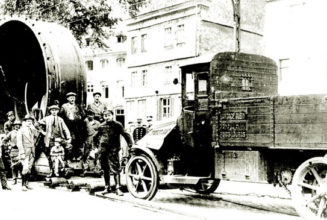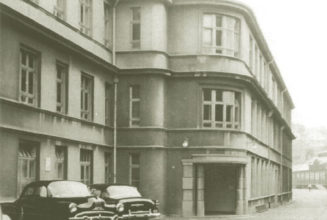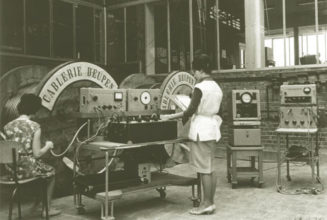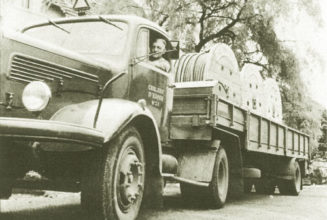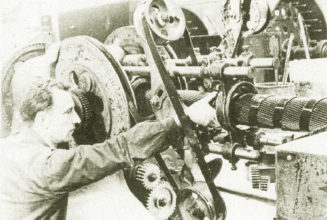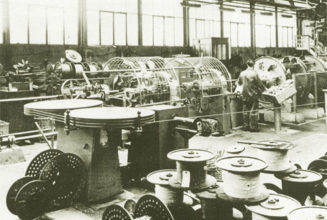History of Kabelwerk Eupen AG
Tradition combined with the courage to make innovative decisions
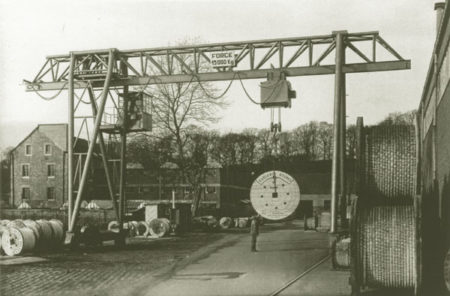
Kabelwerk EUPEN AG can look back on a history of more than a century. A long period of time, where the founding family Bourseaux – which is still the owner family today – has always shown a good sense for forward-looking technologies.
The success of the company which is still led as a family business is based before all on classic and traditional values, combined with the courage to seek for innovative decisions.
Production of cables for more than 110 years
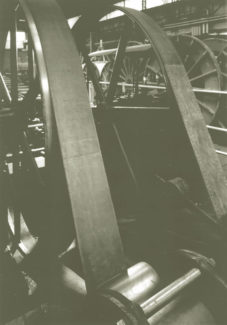
The history of family-owned Kabelwerk EUPEN AG starts back in 1747 with the founding of the rope factory “J.P. Bourseaux & Söhne”. At that time, the family Bourseaux produced jute ropes and hawsers in a small workshop. About 150 years later, the brothers Carl and August Bourseaux combined their expertise with their entrepreneurial spirit and started with the production of electrical cables. A promising decision because soon after that, cables and wires were needed on an extensive scale due to the emerging electrification.
The cable business developed well and the company management acquired further facilities and implemented new production processes and techniques. Within the year 1908, the first wire drawing machine was put into operation and “Kabel und Gummiwerke Eupen AG”, the predecessor company of the present Kabelwerk EUPEN AG was founded. The demand for cable products from Eupen constantly grew. In the early 1920s, elastomer and neoprene compounds were introduced. Apart from cable production, these compounds were used for the production of rubber soles and bicycle tires. This business activity was maintained until the 1970s. At the end of the 1920s, the business had turned into a large company in the cable industry and had become an important employer in the region. At the start of the 1930s, the production of paper insulated and lead sheathed medium voltage power cables was launched. About 20 years later, new compounds found their way into cable production: PVC (polyvinyl chloride) and PE (polyethylene) were from this time on used as insulation and sheathing materials.
Plastic Pipes and synthetic foams: new business divions, new technologies
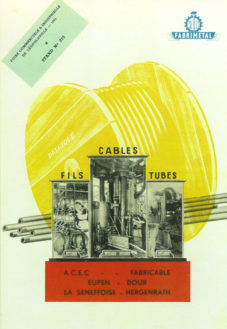
In the begin of the 1950s, the company management recognized the future importance of the new plastic compounds and implemented two new business areas: the production of plastic pipes and the production of synthetic foam. This showed the entrepreneurial instinct for forward-looking decisions. Until then, no production site for synthetic foams existed in Europe. The two new business divisions provided the company a basis for synergies. Till day, there are separate production sites in Eupen for these two business divisions Eupen Pipe and Eupen Foam.
With the expansion of the telecommunication infrastructure in the 1960s, especially for the cable television (CATV) networks, new opportunities opened up for Eupen Cable. In several pilot projects, cable systems for TV transmission were installed in Belgium. The coaxial cables used for these projects were produced in Eupen.
By the end of the 1980s, the development of a protective pipe system for fibre optic cables showed again the synergy effects between cable and pipe technologies.
Quality and safety for humans and environment

The following years led to further technical innovations. In all divisions, the awareness for safety got stronger. Along with the huge investments of the power utilities in nuclear power plant technologies, Eupen Cable started with the development of safety cables for this application. The safety cables used since the early 1980s were in full accordance to the IEEE quality control. Long before the introduction of the ISO quality standards, Kabelwerk EUPEN AG was promoting the concept of quality. At that time, environmental protection became important as well. Already in 1981, Eupen Foam introduced CFC-free foam production. Kabelwerk EUPEN AG installed a treatment plant for the cooling water from the cable production.
Cables, pipes and foam - a solid structural framework for the future
Intensive research and development marked the 1990s. In the strive for quality improvements, the multiple production processes were constantly optimized and in 1993 the company introduced the ISO 9001 quality standard.
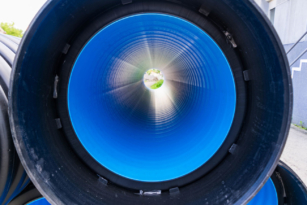
The technology and the knowledge in the cable, pipe and foam divisions built a complementary and solid structural framework for the transition to the new century.
With the rise of mobile communication in the 1990s, the demand for 50 Ohm coaxial cables grew rapidly and led to important investments in new production, testing and logistic facilities in the year 2000. Furthermore, the product assortment was extended with connectors and other accessories. With the desire to be able to use mobile communication at any time and anywhere, the demand for reliable radio communication in confined areas increased. Eupen Cable recognized this trend and developed the so-called radiating coaxial cables or antenna cables with its corresponding accessories.
The years 2000 to 2008 were devoted to the expansion of geographical presence and export. In addition, the focus was on further optimization of the manufacturing processes and the automation of production.
Even in times of crisis, the owner family Bourseaux decided to adhere to the company location in Eupen and invested massively in its production sites. The main focus was set on capacity enlargement, modernization of production, automation and ergonomics of production processes, environment and CO2 reduction, infrastructure works, logistics and warehouse enlargement.
History of the Pipe factory
The pipe factory with ongoing technical developments
The pipe factory which was founded in the early 1950s and operates as the business division „Eupen Pipe“ is today one of the largest and most significant extrusion plants for PVC and PE pipes in Belgium. Since begin of the 1970s it is located in the “Hütte” district of Eupen.
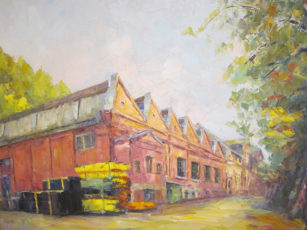
In the mid of the 1950s, Eupen Pipe started with the development of plastic cable conduits. Followed by the production of waste water pipes, as the entry of the company into the sanitary market. From these modest beginnings soon developed a vast product range including PVC and PE pipes for hot and cold water systems, for industrial plants, underground water conduits, drainage systems, PVC rain water and waste water pipes. Later followed the production of pressure pipes for gas distribution.
In the course of the year 2010, Eupen Pipe started with the production of PE100-RC pipes designed for use in the water management, the geothermal sector, in waste management and in various other industrial applications. These pipes are most suitable for alternative ways of installation such as relining, horizontal directional drilling, ploughing and milling or open trench installations without sand bed.
The main focus of the investments of the past few years was set on the modernization of the production equipment and the installation of new extrusion lines with quick-switch technology, capacity enlargement, automation and improvements in processes and ergonomics, environment and CO2 reduction, infrastructure works and installation of a recycling and regranulation line to recycle production waste.
History of the synthetic foam factory
Synthetic foam from Eupen for more than 65 years
The foam factory, that operates under the division Eupen Foam, is producing synthetic foam in Eupen for more than 65 years for the mattress, the furniture and the packaging industry, as well as for the automotive and the medical sector. End of the 1960s, the first production site was established at a former spinning mill in Eupen. Soon after that, a new site had to be found due to safety reasons. For this purpose, a new production plant was build in 1971 at an appropriate location on the outskirts of Eupen. At the time, with its manufacturing hall measuring almost 18.000 square meters, it was one of the biggest and most modern foam factories in Europe.
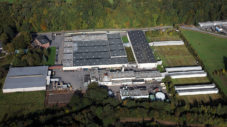
In 1989, Eupen Foam was worldwide the first producer of foam blocks to replaced chlorofluorocarbons (CFC) and other environmentally hazardous substances by environmentally friendly substances.
In the past few years, the investments were focused on the modernization and robotization of the gluing line, on process optimization, enlargement of the production and the storage capacity and on improvements regarding automation and process ergonomics.
